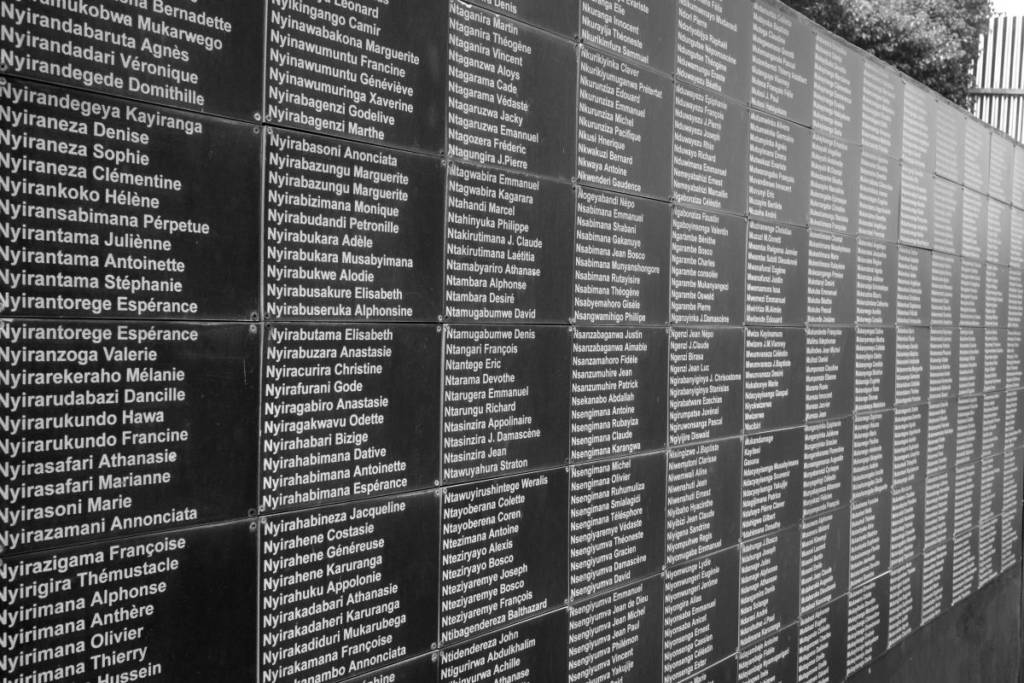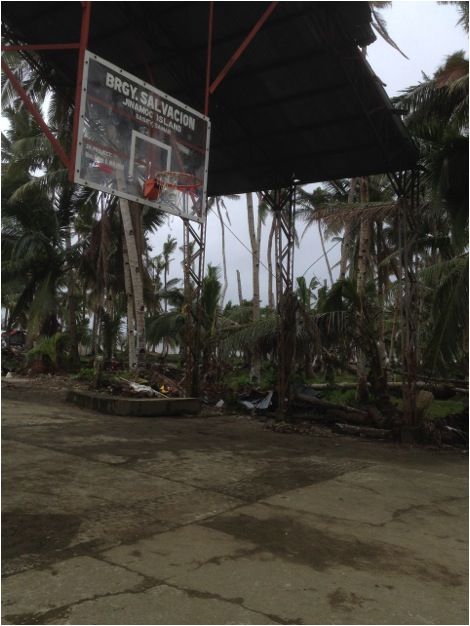Today, we are publishing excerpts from contributors Nalini Jones and Jeff Parker in anticipation of the Issue 07 Launch Party this Sunday. Join us for a Spring fete of live literature and music featuring readings by Jones and Parker!
All posts tagged: 2014
Rwandan Genocide: Two Days, Three Memorials
April 6, 2014, marks the 20th anniversary of the horrific genocide in the African country of Rwanda, when an average of 8,000 people were killed per day over a period of 100 days.

Victims of the 1994 genocide are engraved in a wall in the Kigali Genocide Memorial Center in the capital of Rwanda.
In 1994, I followed the news out of Rwanda as we learned that over a period of 100 days, those identified as Hutus killed some 800,000 others identified as Tutsis, mostly with machetes. Recently returned from a decade working as a foreign correspondent, I considered returning overseas to cover the immediate aftermath, but only briefly: I was pregnant with my third baby, and I knew from experience a pregnant me could not manage the extended stretches without sleep and food which would be required to report on this story, at once complex and horrifyingly simple.
Con
We decided to start with a con. She was small, with blonde hair and an unidentifiable accent that gave her voice the warped vowels and ee-haw rhythms of a handsaw. She approached him on the footbridge, made a startled noise, and looked down. His eyes followed hers, and there—exactly midway between them—was a golden ring. She picked it up first, having been, after all, the one who had put it there the instant before he caught sight of her.
The Common Statement
1.
The sidewalk in front of my house unfurls enticingly to the north and south. Though its seams have buckled after months of gravel and salt, the walk still leads me to my neighbor’s porch, where I pull eggs and goat cheese from the fridge, take honey from the shelf, and leave cash in an unlocked box. The snow- and ice-narrowed path also still ferries a friend and me to the Bookmill, where we drink wine in the afternoon and squeeze up tight next to the stacks to peer down on the rushing creek below. If the walk’s covered overnight by a hard snow, Don blasts his snowblower through, the cranking assault of the motor a reasonable price to pay for the favor. For the magic of having one’s way into the world restored. That I have a sidewalk outside my door is a fairy-tale luxury, an enchantment.
Tindog Tacloban
By KEANE SHUM

We stood among the wreckage of the barangay captain’s house and his furniture shop and his crumbled internet café, where three months ago you could put a ten peso coin in and for a few minutes connect from this little island to the world out there, beyond Cancobato Bay, the San Juanico Strait and Tacloban. CPU shells lay stacked up like carcasses against one of the few walls still standing, ghosts in the machines, severed cables and keyboard drawers jutting out like compound fractures. The barangay captain has not had time to rebuild. He has a job to do; he is the barangay captain.
The Boston Globe (2014)
The Boston Globe highlights The Common in an article about Journal of the Month.
The Kenyon Review (2014)
The Kenyon Review Online interviews Editor in Chief Jennifer Acker about The Common and its new online features.
Beyond the Margins (2014)
Beyond the Margins names The Common as a “hearty, high quality, aesthetically traditional lit mag.”
The Best American Nonrequired Reading
The Best American Nonrequired Reading 2014, ed. Dave Eggers, named Rolf Potts and Cedar Van Tassel’s “The Misadventures of Wenamun” as Notable Nonrequired Reading of 2013.
2007-2010

I arrived by evening train from Kyiv, the trees along the tracks slicing through orange light outside my window, an erratic metronome whose meter would set the pace for my three years as a Peace Corps ESL teacher in the village town of Radyvyliv. There would be long camp days with my students stretching into what would feel like weeks, winter flu quarantine days when I would stay indoors to write bad prose until I fell into a deep sleep as the early morning light broke, hours and hours of reading Gogol by candlelight and trying to conjure up some ghost of lunatic inspiration—but in those first few days of struggling to find a grip on the culture, in those first few hours with my host family, everything arrived and departed at a rapid pace. I knew just enough Ukrainian to know how much more I needed to learn, and how little time I had to learn it before I would begin to look like an idiot. Peace Corps had arranged for me to live with a host family for the first month of my stay before moving to an apartment, and I was terrified of insulting these people with my ignorance of all things Ukrainian.





